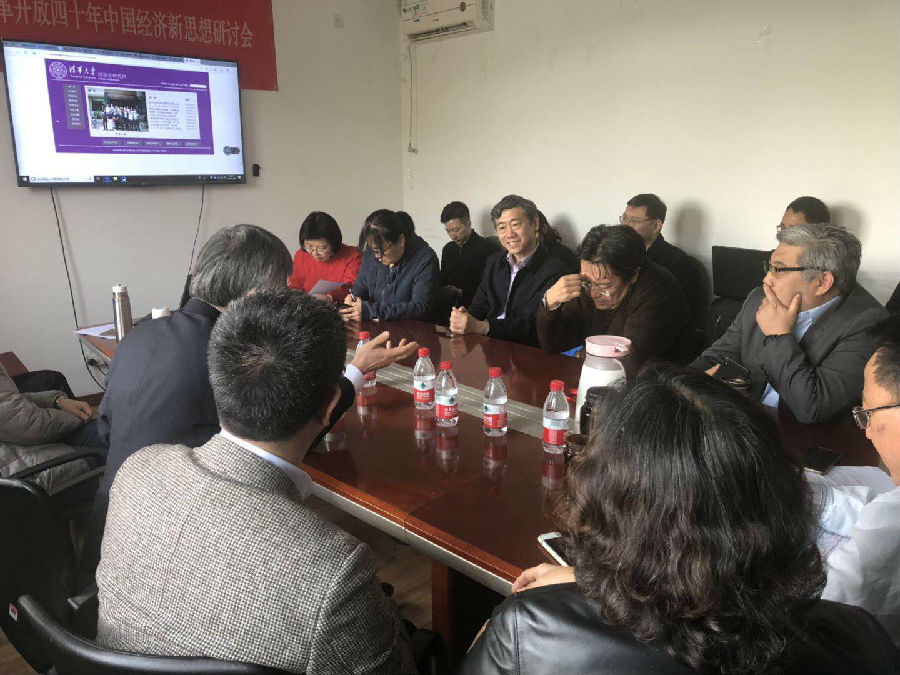On the afternoon of March 28, 2019, the Institute of Economics held a small but heated academic seminar in Room 221 of Mingzhai Building. The theme of the seminar was “New Ideas for the Chinese Economy in the 40 Years since the Reform and Opening up”. The teachers expressed their viewpoints.
First of all, Professor Cai Jiming talked about the changes in the Chinese economy from three aspects. One, the ownership structure has changed from a single public ownership system to a basic economic system in which public ownership is the mainstay and economic entities of diverse ownership develop together. Two, the distribution system has changed from work-based distribution to a distribution system in which distribution according to work is the main form that coexists with other forms of distribution. Three, the resource allocation mechanism has changed from a planned economy regulation to a market economy regulation as the main way. Cai raised a question, that is, can we find new ideas from the changes that have taken place in the Chinese economy for the past 40 years? He believes that from the perspective of economic system, the socialist economic system and the capitalist economic system are converging, and the key to the future integration of the two major ideological systems is the theory of value.
Second, Professor Gao Shujuan made a speech. Starting by comparing economic systems and studying economic development of China and Japan, Gao believes that there are errors in the translation of language in the process of economic research. Secondly, Gao raised a question that whether it is problematic to explain China’s issues by Western viewpoints and China’s phenomena by Western ideology. Can we learn from Western methods to study China’s economic issues? She also said that there must be new concepts in the research process, and that new ideas cannot stand out without new concepts. Finally, Gao proposed that to study China’s economic issues, one should think about the ideas for the Chinese economy from multiple angles so that academic confrontation is formed and new viewpoints generated.
Third, Professor Li Daokui gave a speech. In the past 40 years, the Chinese economy has undergone tremendous changes. Li raised a question that what creation do we have in economics? Li believes that economic practice is the source of economic ideas. He said that Japan’s economic ideas did not produce a corresponding leap in economic practice, and the economic practice of the United States did not produce economic ideas. In his view, the most distinctive feature of China’s economic practice is that the government puts economic development at the center of work, which helps the rapid development of the economy.
The next was free discussion. The teachers discussed the relationship between government and market from many angles. For example, Long Denggao reviewed the development of China’s port cities from a historical perspective. He believes that the rapid development has much to do with the government’s role; Wang Yong talked about the historical development stages of park economy and proposed that how to define the boundary of government administration is a question worthy of study. Some teachers talked about the important role of the government in the success of state-owned enterprise reform, and some other teachers sorted out the changes in China from a planned economy to a market economy, the ongoing changes in the Chinese economy and the shifts in government regulation ideas.
This unique seminar saw a variety of contents discussed in a heated manner. Finally, Liu Taoxiong made concluding remarks and welcomed Li Daokui for joining the Institute.
